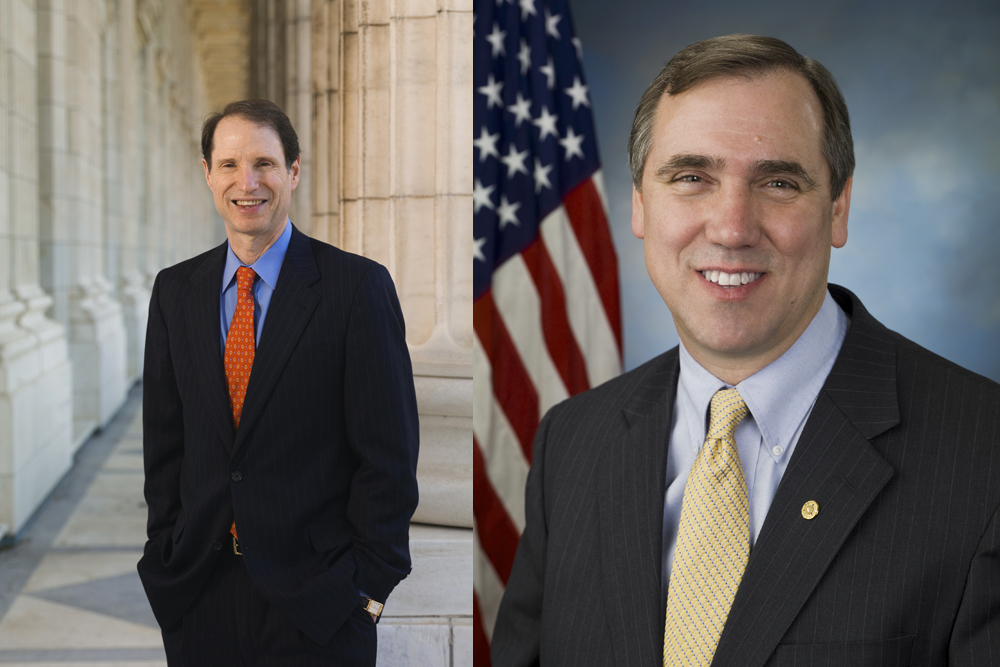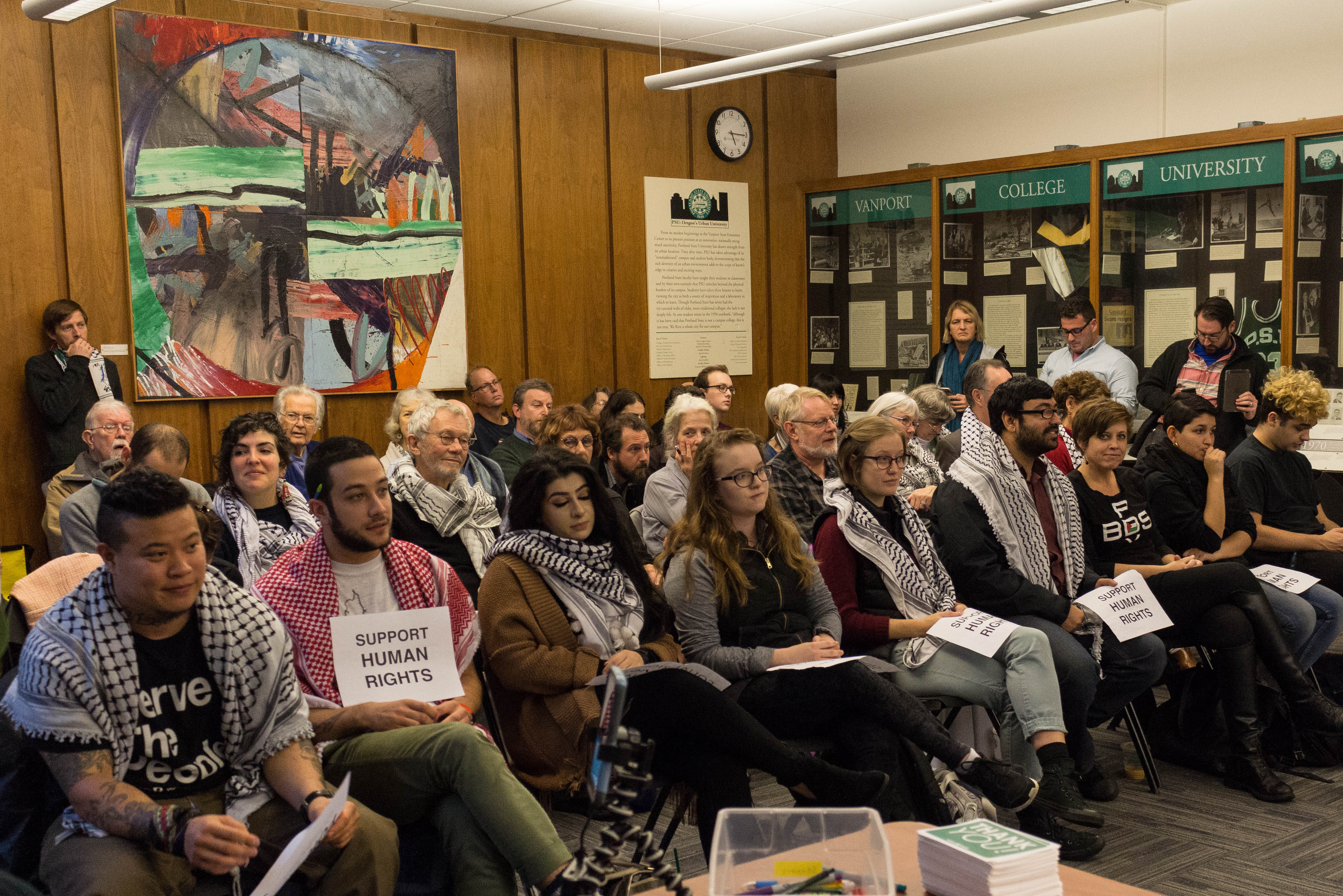Oregon’s top survivor-championing senators joined local activist Brenda Tracy in visiting the Portland State campus on Monday, Oct. 9 to talk about sexual violence prevention and education.
Sen. Ron Wyden (D-Ore.) and Sen. Jeff Merkley (D-Ore.) joined an hour-long panel with PSU President Rahmat Shoureshi and PSU’s Title IX Coordinator Julie Caron, along with other members of PSU staff and administration, to talk about U.S. Secretary of Education Betsy DeVos’ recent Title IX rollbacks.
The message: More schools need to go on record saying they aren’t going to change anything.
“You ought to have the federal government on your side rather than having to try to work around it,” Wyden said, addressing PSU staff on the panel. “And I just know that given the fact that one out of five women in college will be sexually assaulted during their time there, it’s pretty obvious what the urgency is all about.”
Last week, The Vanguard covered PSU’s response to DeVos’ interim revisions to a 2011 “Dear Colleague Letter” and 2014 guidelines on sexual misconduct investigations.
At the moment, PSU is not required and does not choose to change anything about its sexual misconduct investigation policies. DeVos’ changes include allowing schools to take longer than 60 days to complete investigations, allowing higher standards of proof to be required other than “the preponderance of evidence standard,” and allowing schools to facilitate mediation for complainants and respondents.
2017 also marks the first year that prevention workshops are mandated for new students, dorm residents and athletes. However, while PSU has bulked up its advocacy and prevention programs in recent years, other schools are not required to be so progressive.
Tracy says that until new guidelines are finalized, victims are going to live in fear of reporting their perpetrators. “If you are in a situation you know you’re going to report, you’ll have to sit down with your perpetrator and mediate. Why would you come forward?” Tracy asked.
The public speaker, lobbyist, and gang-rape survivor added, “[What] if your report is not going to be taken care of in a timely manner? [Or] there’s only an appeal on the other side? If you know it’s stacked against you, what is the point of coming forward?”
Dean of Student Life Dana Walton-Macaulay, who is responsible for investigating instances of sexual misconduct, said forcing survivors into mediation or cross-examination with a lawyer is counter to the purpose of her work.
Macaulay said forcing these methods of investigation would take the “compassion” out of PSU’s survivor-centered, but equitable approach.
“Outside of mediation, [cross-examination] is one of my biggest concerns and one of the things that would make me second guess, ‘do I want to come to work and do this anymore?’ because it’s already difficult work to do” Macaulay said.
Merkley added that maintaining a safe environment for survivors on campus should be a fundamental goal for colleges.
“When our sons and daughters go off to college” Merkley said, “it’s a time of incredible opportunity to expand the horizons of their minds, to explore things that they may want to dedicate their lives to, to develop close friendships and a foundation for the community going forward. But all of that is ripped asunder by sexual assault.”
Caron said new guidelines are not expected to come out with an official comment period for perhaps another year, meaning no one will really know what the Education Department intends to permanently change until then.
However, at the Association of Title IX Administrators Conference in Philadelphia Caron just returned from, she said other Oregon Title IX Coordinators also do not plan to change the way they investigate sexual misconduct.
“You can’t put the genie back in the bottle” said Vice President of Global Diversity and Inclusion Carmen Suarez. Suarez said now that schools have worked to acknowledge that rape culture exists, that a dominant versus submissive relationship is toxic, and what “enthusiastic” consent means, “that kind of education will not change, regardless of how possible it is for the [DOE] to change things.”
Still, Wyden said, “we’ve got a big fight on our hands.”
Tracy said she is lobbying with Oregon legislators this session to codify parts of Title IX into state law. Legislation like this has been swiftly passed through the California legislature.
Wyden added that he and Merkley will continue to be partners in advocating for survivor-centered legislation. “The Trump administration wouldn’t have teed this up this way unless they were determined to make some changes.”
That’s why, Tracy said, it’s so important for individual schools to publicly state they are sticking with a survivor-centered approach. PSU’s response, Tracy said, sets an example for other institutions. Now, “all of our universities need to go on record and say we’re not going to change anything,” Tracy said.






